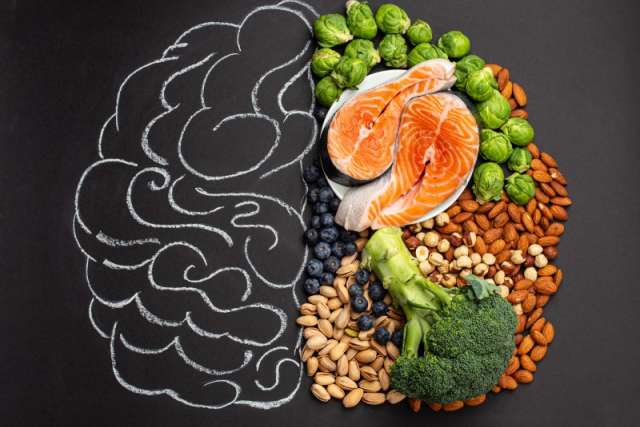Lifestyle
How Your Diet Affects Your Mood: The Gut-Brain Connection

When it comes to what influences our mood, we often think about stress, sleep, and even the weather. But have you ever considered how your diet might affect how you feel? Research is increasingly showing that the food we eat plays a crucial role in regulating mood, energy, and even mental health conditions like anxiety and depression. So, how exactly does your diet influence your brain and mood?
The Gut-Brain Connection
Our gut and brain are closely linked, with ongoing communication between the two. Dr. Lisa Mosconi, a neuroscientist and author of Brain Food, explains that if your gut health is out of balance, it can negatively impact both your mood and mental clarity. This connection is vital in understanding how our food choices can affect our mental well-being.
The gut is often referred to as the “second brain” due to the enteric nervous system, which controls its function. This system also produces neurotransmitters like serotonin. In fact, nearly 90% of the body’s serotonin, which influences mood and mental health, is produced in the digestive tract.
How Diet Affects Mood
Certain foods have been shown to support mental health and stabilize mood. Dr. Uma Naidoo, a nutritional psychiatrist, says that diets high in sugar and processed foods may contribute to anxiety and depression. In contrast, a balanced, whole-food-based diet can help improve mental health and emotional stability.
Here are some foods that can help boost your mood:
Foods That Boost Mental Health
- Fatty Fish (Salmon, Mackerel, Sardines)
Rich in omega-3 fatty acids, these fish help reduce inflammation and support healthy brain function, improving overall mood. - Dark Leafy Greens (Spinach, Kale)
Packed with folate, a B-vitamin, these greens help regulate dopamine and serotonin levels, both of which are important for a positive mood. - Nuts and Seeds (Walnuts, Flaxseeds, Chia Seeds)
Full of magnesium and healthy fats, these foods help combat stress and enhance mental clarity. - Fermented Foods (Yogurt, Kimchi, Sauerkraut)
These foods contain probiotics, which promote healthy gut flora, supporting overall gut health and improving mood stability. - Dark Chocolate (70% cocoa or higher)
High in flavonoids, dark chocolate helps increase blood flow to the brain, boosting mood and mental performance.
Foods That May Worsen Mood
Dr. Drew Ramsey, author of Eat to Beat Depression and Anxiety, warns against consuming highly processed foods and excessive amounts of caffeine. These can lead to energy crashes and mood swings. To maintain balanced mood levels, it’s essential to avoid foods that contribute to inflammation and brain fog.
Here’s a list of foods that may worsen mood:
- Highly Processed Foods (Fast food, Packaged snacks)
These foods are often high in sugar and unhealthy fats, which can cause blood sugar spikes and crashes, leading to mood instability. - Excessive Caffeine
While a small amount of caffeine can boost energy, too much can cause anxiety, irritability, and sleep problems, all of which affect mood.
The Importance of a Balanced Diet for Mental Health
Maintaining a healthy diet is crucial not only for physical health but also for emotional well-being. The foods we consume can significantly influence how we feel and think. To boost mood, energy, and mental clarity, it’s essential to focus on nutrient-rich, whole foods and reduce processed foods, sugars, and excess caffeine.
By understanding the gut-brain connection, you can make better dietary choices that support both physical and mental health. A balanced diet filled with brain-boosting nutrients can help improve your mood and reduce the risk of mental health issues like depression and anxiety.






